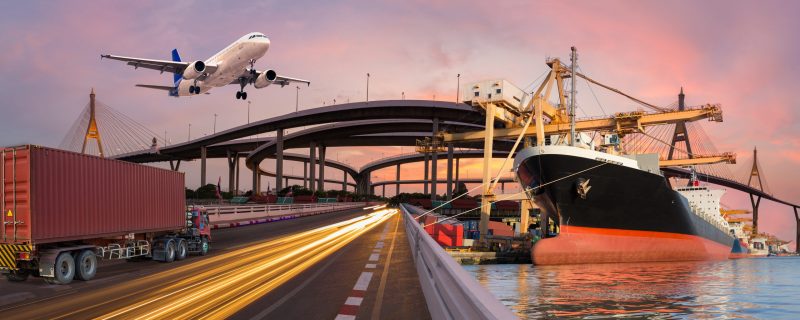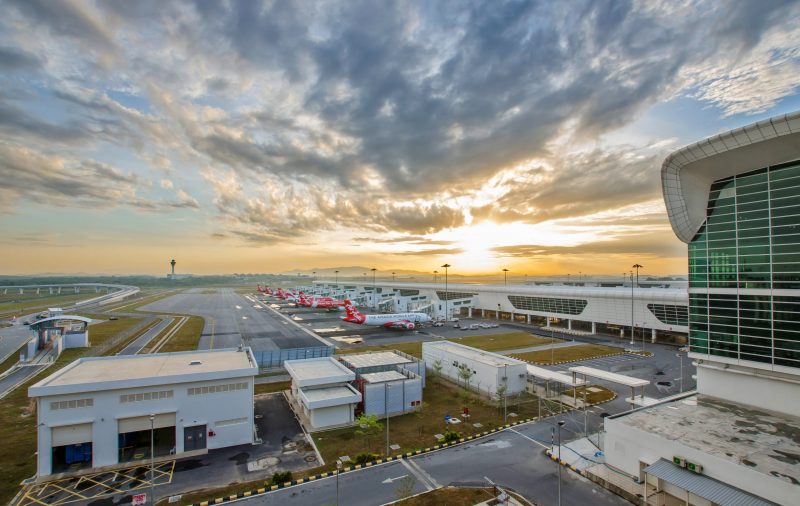
This site
is mobile
responsive

The Malaysian logistics sector contributed 3.8% to the country’s GDP in 2019. Over the years, trade activities in Malaysia have increased significantly, with a CAGR of 6.5% from 2013 – 2018. Transportation activities have also increased over the years at a 3% CAGR from 2013 – 2018. The Government’s initiatives under the National Logistics Trade Facilitation (NLTF) 2015 – 2020 and National Transport Policy (NTP) 2019 – 2030 aspires to increase GDP contribution for logistics services to 8.9% for 2020 and beyond as well as to internationalise the logistics industry in Malaysia in the context of regional trade integration. The National e-Commerce Strategic Roadmap (NESR), established in 2016, also intends to accelerate the development of e commerce activities and position Malaysia as a regional e-fulfilment hub in the near future.
The global logistics industry is becoming more complex and sophisticated due to niche demands from various industry sectors. Companies are looking for logistics service providers which can offer total logistics solution and efficient end-to-end services. These emerging trends are due to the increase in global trade activities and globalisation of businesses through uplifting trade barriers and enhancing trade relations. In addition, the ongoing US-China trade war and global pandemic have pushed many companies to restructure their global business operation and relocate their logistics activities to a more strategic location where their logistics activities are less disrupted. Malaysia sees this as a strong opportunity to market the country as a regional logistics hub as the country is strategically located within the heart of ASEAN and not affected by the US-China trade tension.
Since 2003, Malaysia has successfully attracted several multinational companies to establish its regional operations here, such as BMW, Volkswagen, IKEA, Daikin, Osram, Hershey, Zalora and Daiso. The spillovers created by their establishment over the years have motivated the Government to continue enhancing strategic initiatives through policy advocacies, infrastructure development to create an ideal business ecosystem and strengthening trade relations to further entice the establishment of regional hubs in the country and position Malaysia as a potential destination for Regional Logistics Hubs.
In line with these efforts, the Government established the Digital Free Trade Zone (DFTZ), the first electronic world trade platform introduced by Alibaba Co. Ltd outside of China, in 2017 to facilitate seamless cross border trade and enable local businesses to export their goods with a priority for e-Commerce.
The DFTZ provides physical and virtual zones to facilitate SMEs to capitalise on the convergence of exponential growth of the internet economy and cross-border e-Commerce activities. The DFTZ simply positions Malaysia within the global radar as a potential country in becoming a regional e-fulfilment hub for e- Commerce companies to stock inventory in Malaysia and fulfil customers’ order within the region.

The East Coast Railway Line (ECRL) project is another major initiative by the Government towards building world-class logistics infrastructure to support international trade activities in Malaysia. These efforts contribute towards enhancing the country as a preferred logistics hub in the ASEAN region. This project is expected to complement the Maritime Silk Road (MSR), a development strategy to boost infrastructure connectivity throughout Southeast Asia, Oceania, the Indian Ocean, and East Africa. Malaysia will be on track in developing connectivity and expanding the country’s economy to other regions as the MSR initiative progresses.
The KLIA Aeropolis project is set to be a game-changer for aviation activities in Malaysia, providing an integrated, complete and synergistic ecosystem comprising three core clusters: Air Cargo & Logistics, Aerospace & Aviation, and MICE & Leisure. This aspirational project is aligned with the national master plans and blueprints to elevate Malaysia as a magnet for foreign direct investments.
KLIA Aeropolis aims to be a fully-equipped logistics hub in a vast space with excellent infrastructure and dedicated land banks for further growth, which will be developed over several decades. The development plan will ensure the country’s readiness in servicing regional activities and is in line towards becoming the gateway for ASEAN.
Besides infrastructure development, the Government have also introduced a Special Tax Incentive under the Economy Recovery Plan (PENJANA) for companies that intend to relocate their operations to Malaysia and make new investments. This incentive is also introduced to provide an alternative for businesses affected by the US-China trade tension and the COVID-19 outbreak that disrupted their global supply chain. In addition to this, several tax incentives such as the Principal Hub incentive and the newly announced Global Trading Center under Budget 2021 will also be key incentives in attracting regional activities to be based in Malaysia. Other offerings such as the Integrated Logistics Services (ILS) tax incentive and International Integrated Logistics Status (IILS) continues to be available for businesses undertaking logistics services activities in the country.
Source: MIDA e-Newsletter April 2021